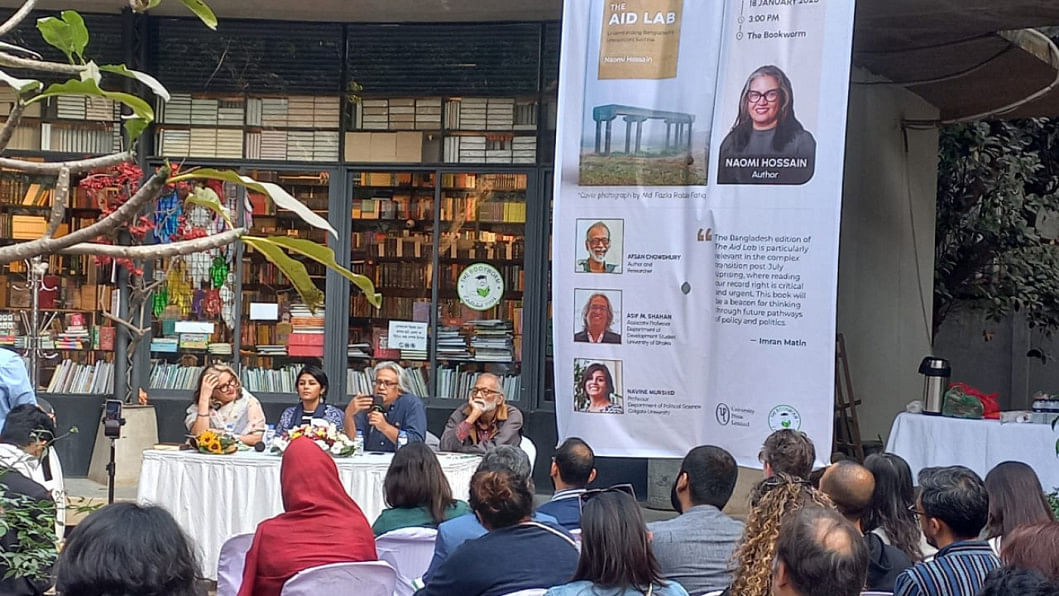'Govts become illegitimate when people suffer from hunger'

The 1974 famine in Bangladesh, which caused the death of 15 lakh people, taught policymakers that governments become illegitimate when people suffer from hunger, said Naomi Hossain, a professor in the Department of Development Studies at SOAS University, London.
Since then, Bangladesh has become a site for numerous foreign aid experiments, she said at the launch of her book "The Aid Lab: Understanding Bangladesh's Unexpected Success" in Dhaka today.
The University Press Limited (UPL) organized the event at The Bookworm in Dhaka.
Naomi, a Bangladeshi-Irish academic who has lived in Bangladesh, Indonesia, the UK, and the US, said her book focuses on the 1974 famine.
Unfortunately, there are not many films or books on this period of extreme food scarcity, even though it caused the deaths of 15 lakh people, she said.
"This is because the elites do not talk about it—they survived, while the poor died," she said.
However, the famine led to significant policy changes, and since then, the government has ensured food security for its citizens, she added.
Asif M. Shahan, an associate professor in the Department of Development Studies at the University of Dhaka, said that the memory of the famine continues to haunt policymakers.
As a result, they recognize that they must prioritize food security to gain public support, maintain legitimacy, and stay in power.
However, he added that, in an ideal situation, democracy and voting should also be equally important for ensuring legitimacy.
Afsan Chowdhury, a researcher and writer, and Navine Murshid, a professor in the Department of Political Science at Colgate University, also spoke at the launch event.

 For all latest news, follow The Daily Star's Google News channel.
For all latest news, follow The Daily Star's Google News channel. 



Comments